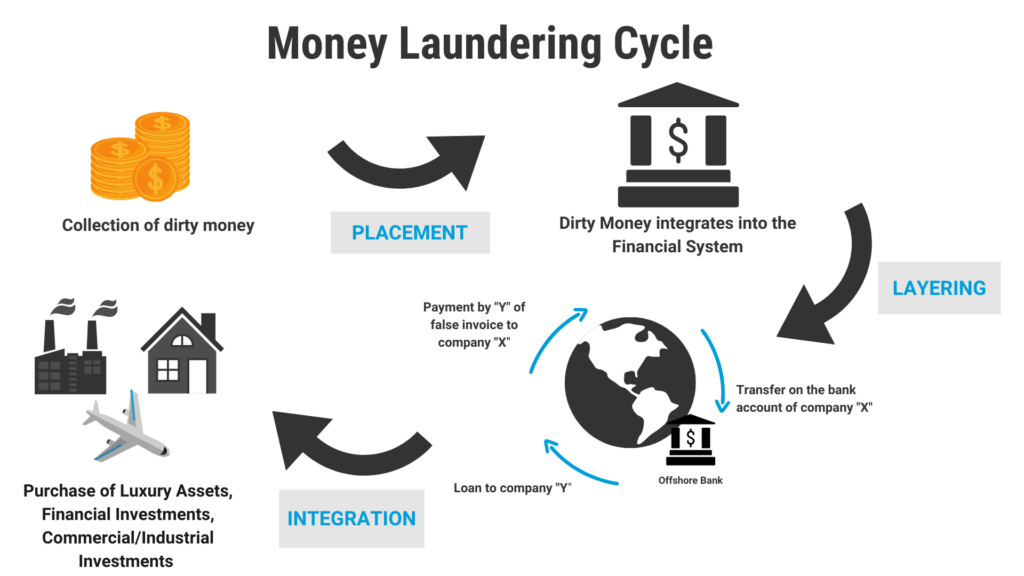Money Laundering, Terrorist Financing, and Proliferation Financing
The UNODC provides a comprehensive overview of money laundering, terrorist financing, and proliferation financing, each characterized by distinct processes and stages:
Money Laundering
As defined in the UN Vienna 1988 Convention Article 3.1, money laundering involves the conversion or transfer of property known to be derived from offenses, with the intent to conceal or disguise its illicit origin or to assist others involved in such offenses to evade legal consequences.

Stages of Money Laundering:
- Placement: Moving funds from direct association with the crime.
- Layering: Disguising the trail to foil pursuit.
- Integration: Making the money available to the criminal from seemingly legitimate sources.
In practice, these stages may not be distinct and can overlap or repeat. For instance, cash from drug sales may be deposited in small amounts and then transferred to a shell company, combining placement and layering in one step.
Globally, the estimated amount of money laundered annually is between 2-5% of global GDP, equating to $800 billion to $2 trillion. However, due to the secretive nature of money laundering, accurately quantifying the total amount is challenging.
Terrorist Financing
Terrorist financing involves raising, storing, moving, and using funds by terrorist organizations to carry out terrorist acts. This financing can come from both legitimate (e.g., business profits, charitable organizations) and criminal (e.g., drug trade, weapon smuggling, kidnapping for ransom) sources. Unlike money laundering, which is usually circular, terrorist financing is a linear process where the generated money is used to support terrorist groups and activities.

Stages of Terrorist Financing:
- Raise
- Store
- Move
- Use
This structure underlines the process by which terrorist organizations finance their activities, emphasizing the need for vigilance across various financial channels to prevent such financing.
Proliferation Financing
Proliferation financing relates to the spread of weapons of mass destruction (WMDs) and their delivery systems, including nuclear, radiological, chemical, or biological weapons. While there is no universally agreed definition of proliferation financing, it typically includes financial services for the transfer and export of WMDs and related materials.

Stages of Proliferation Financing:
- Raising of Funds
- Obscuring of Funds
- Shipping of Necessary Items
This framework outlines the financial aspects of WMD programs, highlighting the importance of monitoring and controlling financial flows related to the proliferation of sensitive materials and technologies.
These overviews from the UNODC provide crucial insights into the complex nature of these financial crimes and the global efforts required to combat them.
Source: https://www.unodc.org/unodc/en/money-laundering/overview.html